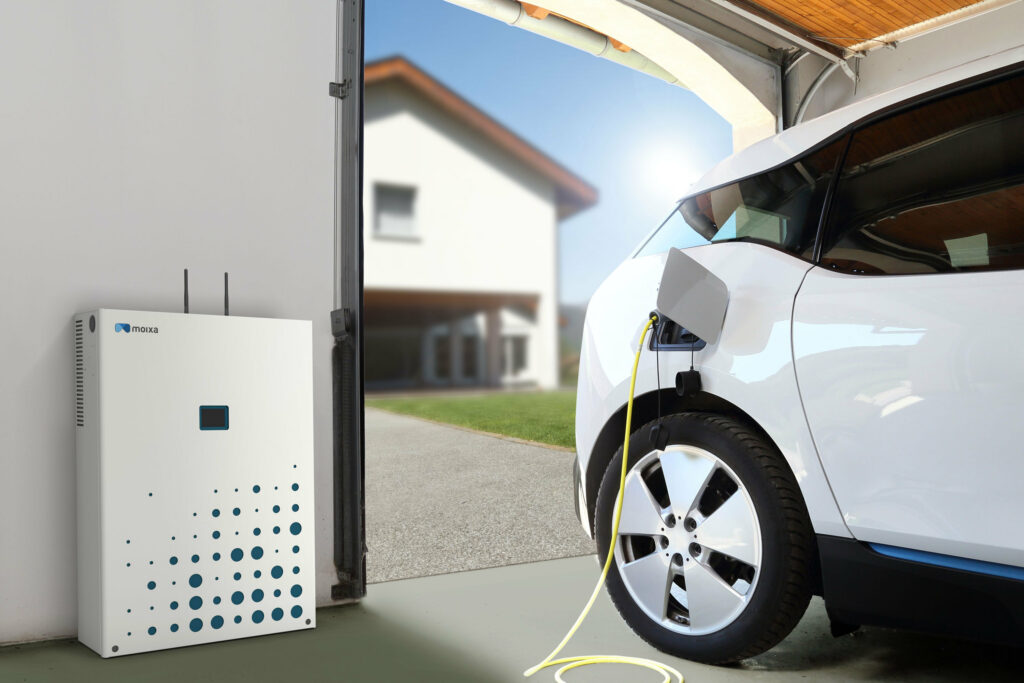A £31 million demonstrator project integrating heat, transport and energy is to progress despite COVID-19 restrictions.
The SmartHubs Smart Local Energy Systems (SLES) project in West Sussex is looking to integrate the decarbonisation of heat, transport and energy across social housing, infrastructure and private and residential commercial properties.
Up to 350 smart solar panel and battery systems provided by Moixa are to be aggregated into a virtual power plant (VPP).
Moixa’s GridShare software will run the VPP, aggregating and managing the “large fleet of hybrid systems” across transport, heat and power that form part of the project to deliver flexibility services into the ancillary markets
The project itself is being run by a consortium led by energy storage firm Connected Energy, which is to install a 12MW/14.4MWh front-of-the-meter battery energy storage system in Sompting, as well as nine 300kW behind-the-meter battery systems across West Sussex.
Five EV charging hubs are to be installed with integrated solar PV and battery energy storage, utilising over 1,000 second life EV batteries to add grid balancing, load management and resilience services to the project.
It brings together a variety of companies, including PassivSystems which will deploy 250 air source heat pumps. These will have smart controls, with learning algorithms analysing multiple data points within the homes to learn their thermal properties.
Weather information and user behaviour will then be overlaid to predict user demand, which is then used to “optimise the efficiency of the heating system” as well as enable aggregation to respond to demand side response opportunities.
Also for heating, interseasonal heat transfer firm ICAX is to provide what it describes as sustainable heating sourced from recycled heat using a marine source heat pump. This will transfer heat from the sea water in Shoreham Harbour to heat adjacent buildings of the Shoreham Port Authority using a district heating system.
For transport, up to 250 EV charging points are to be installed and ITM Power will provide zero carbon hydrogen gas, investigating the feasibility of integrating electrolyser based hydrogen refuelling systems into a localised energy system.
Data analysis and system modelling will be provided by Newcastle University. Data modelling, systems design and “detailed planning” are all moving ahead despite what the consortium describes as “virus restrictions”. Plans are in place to safely ramp up implementation when lockdown restrictions ease.
West Sussex County Council is also in the consortium and is set to support the deployment of the assets in the project alongside Adur and Worthing Council.
“Bringing together innovative technologies and integrating them on this scale is an exciting proposition and one we are keen to see replicated up and down the country to help manage the climate emergency we’re facing,” Matthew Lumsden, Connected Energy CEO and chair of the SmartHubs Steering Committee, said.
SLES is part funded through UK Research and Innovation’s (UKRI) ‘Prospering from the Energy Revolution challenge’.
Rob Saunders, challenge director for Prospering From the Energy Revolution at UKRI, said: “The SmartHubs demonstrator has shown a revolutionary approach in combining expertise and innovation across energy generation, storage and usage with game-changing technologies combined into a cleaner, more flexible system that is fit for the future.”






